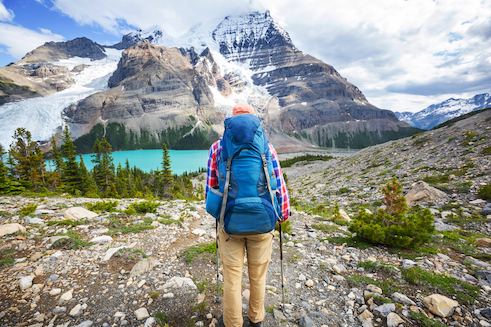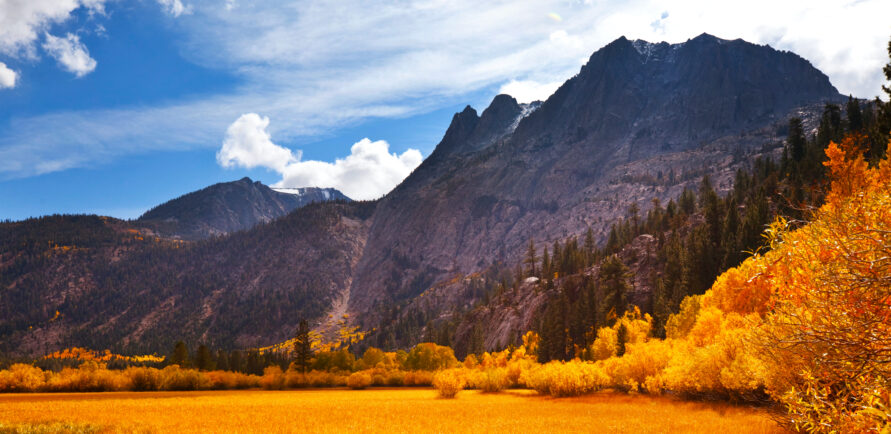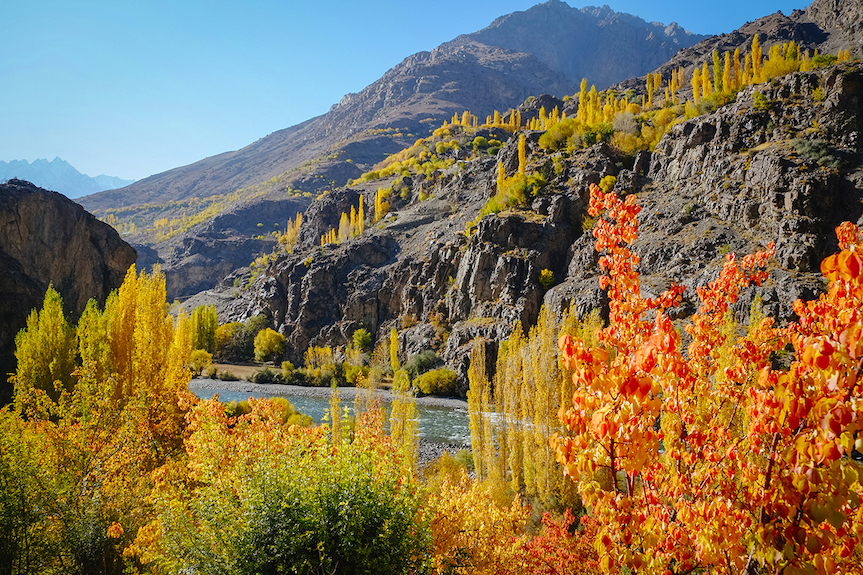Though the Bridgeport area is—by local standards—relatively low in altitude at about 6,500 feet, some people may still experience some effects of high altitude living around here. Whether hiking, biking, climbing, fishing, or any number of other outdoor activities are on your agenda, we offer the following information to help you prevent or counteract anything that might detract from the enjoyment of the time you spend in our beautiful backyard during your vacation.
High altitude is generally considered those elevations between about 4900 and 11,500 feet. Anything above that is considered very or extremely high, so it’s not relevant to our purposes here.
Healthy Folks
If you’re a fairly healthy person under normal circumstances, at high elevations such as ours, the biggest changes you will notice will concern your breathing. You may experience any or none of the following conditions:
- Breathing becomes more rapid and heavy.
- You may occasionally feel short of breath.
- Your nighttime breathing may change, especially if you already have any obstructive breathing issues such as sleep apnea, or use a CPAP machine.
- You will likely feel the need to urinate more frequently.
Semi-Compromised Folks
If you’re not in the best of shape, you may experience what’s “altitude stress.” Symptoms of this condition include
- irritability
- headache
- nausea
- restless sleep
Not-So-Healthy Folks
If your physical condition is moderately impaired, you may find yourself dealing with “Acute Mountain Sickness.” In addition to the previously mentioned symptoms, AMS can also cause you to deal with
- dizziness
- fatigue
- mental confusion
- impaired motor skills
- Worst-case, if you feel these lower-level symptoms and fail to get to lower altitudes, you could even experience high altitude pulmonary and cerebral edema, which can be fatal.
Preventive Measures
Now obviously, that latter scenario is not only against the odds, but is completely unnecessary. All you really need to do is stay aware of your surroundings and pay attention to how you feel physically, and respond using common sense. Here are some tips to follow to stay safe and enjoy higher-altitude camping at its best:
- Before a longer stay at high altitudes, try to spend a few shorter-duration periods of 1-3 days at altitude.
- Begin climbing below the altitude you wish to ultimately go, and don’t ascend more tan 1,000 feet per day. This will allow your body to acclimate slowly.
- If you feel any uncomfortable symptoms coming on, just go back down. It’s the only cure for altitude-caused discomfort.
We love our mountains here in the High Sierra, but we also know to respect them. If you’re unfamiliar with the way weather conditions can change rapidly at altitude, you need to learn what to expect. During the day, bright, sunny conditions may make you feel that the surrounding air is warmer than it actually is. But as soon as the sun begins to set, we guarantee you’ll begin to feel the difference. Mountain temperatures can drop rapidly, and you can experience high wind events in the peaks at any time, day or night…and often without warning.
Weather Considerations
Be prepared for whatever you might encounter by following these tips:
- In warm weather or the “shoulder seasons, avoid areas that could attract lightning strikes, such as exposed ground and ridges.
- Layer your clothing so you can put on and strip off to keep yourself comfortable and adequately protected from the elements.
- Avoid exposed mountain passes, which can easily create wind tunnel effects.
- Choose a sleeping bag adequate to temperatures you expect to encounter.
- Make sure to bring an expedition or mountaineering style tent when camping at high altitudes.
- Make yourself easy to find in an emergency by using established campsites.
- If you expect to encounter ice, wear boots with shanks or crampons to help you dig in.
- You’ll be closer to the sun, so wear UV-rated protective sunglasses and use a high SPF sunscreen
Staying Fueled Up
Cooking, eating and drinking is affected by altitude. Here are some ways to avoid any issues there:
- Because you’ll be urinating more often, make sure to bring enough water to keep you hydrated. Avoid alcohol or caffeine, which actually have diuretic effect.
- This is one time that carbs are your friends. You’ll need them to stay fueled up during your time at altitude.
- If you go above treeline, you’ll find wood scarce, so you’ll have to pack in your own. We recommend liquid or multi-fuel stoves instead of butane, which won’t find enough oxygen at that height to create a good flame.
- The decreased air pressure will have the effect of requiring more time for water to boil, so be patient.
Follow these tips, and your time in the High Sierra can be as rewarding and memorable as you hope!



